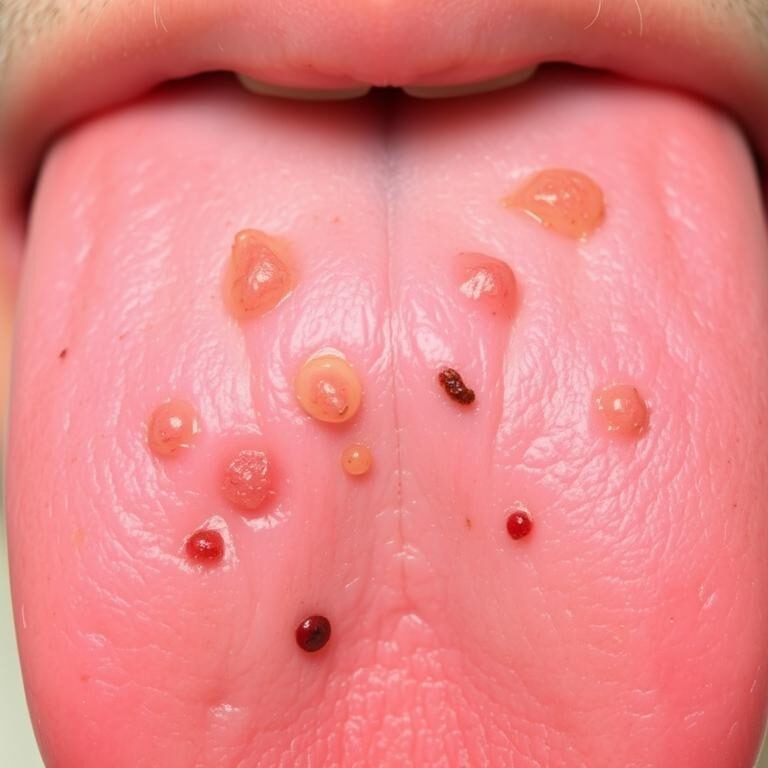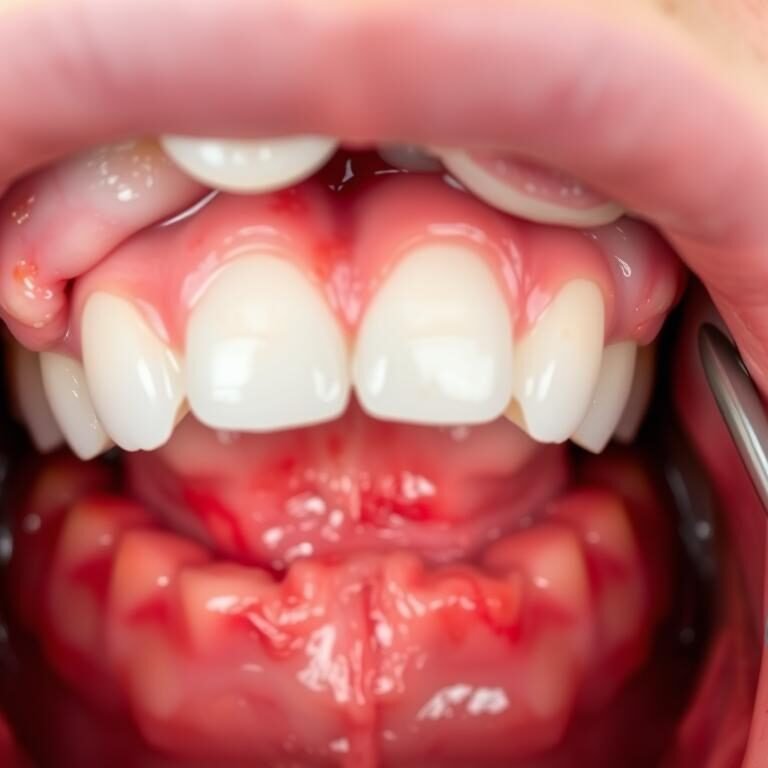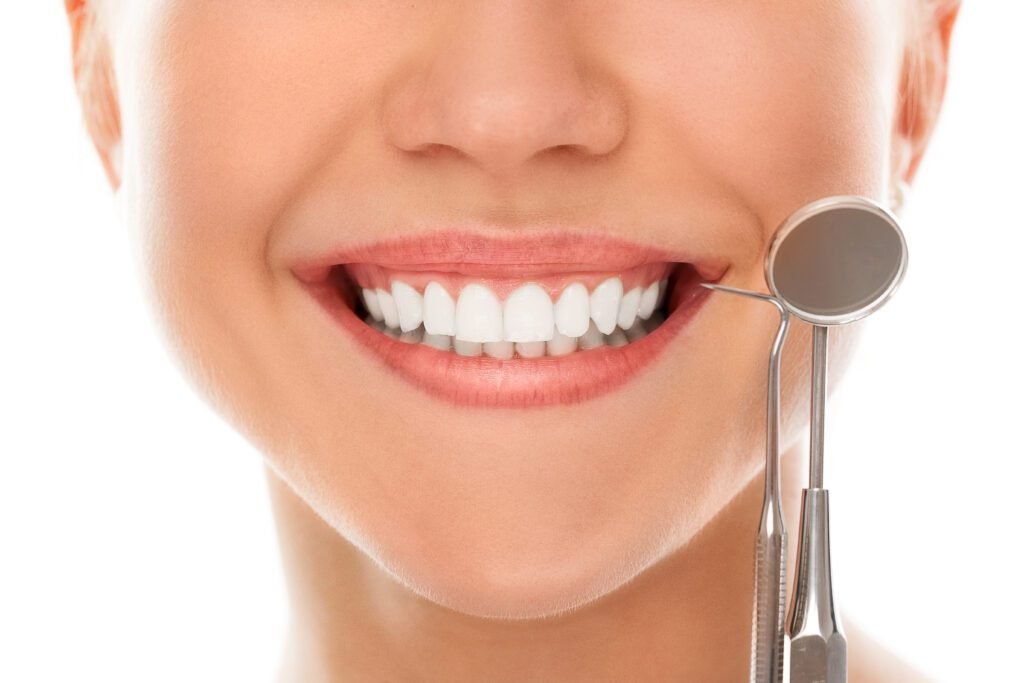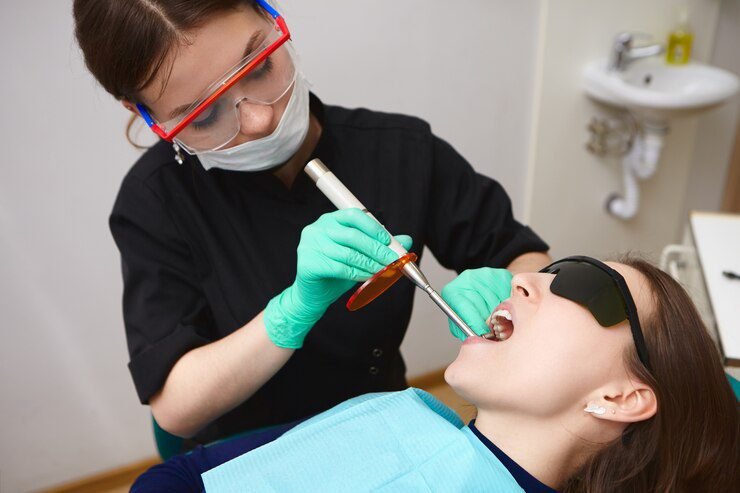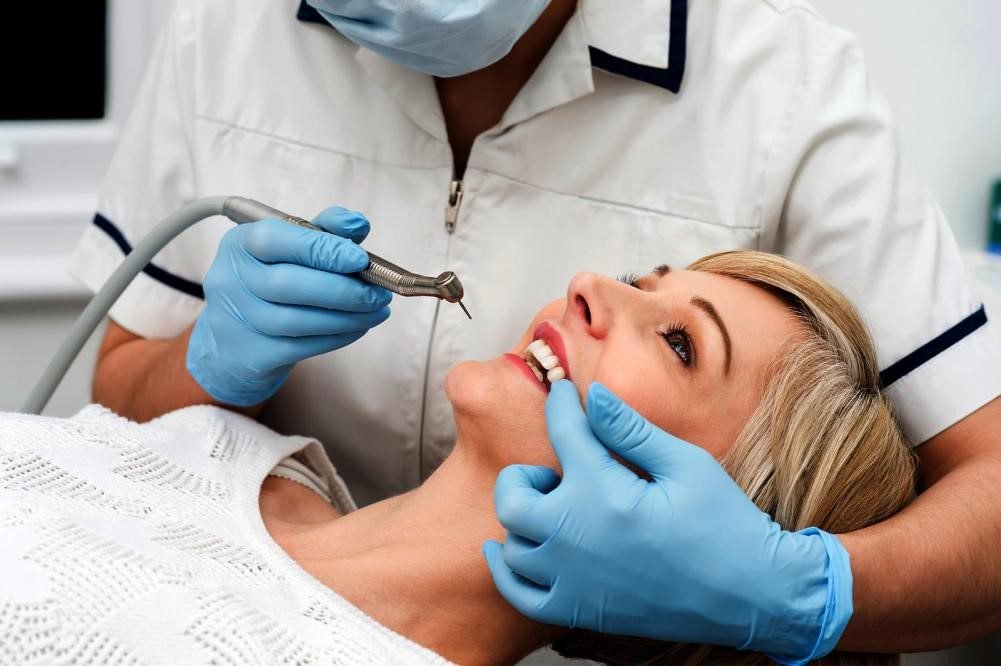Table of Contents
Neglecting proper brushing techniques
Proper brushing techniques are essential for maintaining good oral health. Many people overlook the importance of brushing their teeth correctly, resulting in various dental issues. When brushing your teeth, it is crucial to use a soft-bristled toothbrush and fluoride toothpaste.
Using gentle, circular motions, ensure that you cover all surfaces of your teeth, including the front, back, and chewing surfaces. Pay special attention to the gumline, as this is where plaque tends to accumulate. Avoid scrubbing too hard, as this can damage your tooth enamel and irritate your gums. Additionally, be sure to brush your tongue gently to remove bacteria and freshen your breath.

Neglecting proper brushing techniques can lead to plaque buildup, cavities, gum disease, and bad breath. It is recommended to brush your teeth at least twice a day for two minutes each time. By following these guidelines and incorporating proper brushing techniques into your oral hygiene routine, you can significantly improve your dental health and maintain a beautiful smile.
Skipping regular dental check-ups
Regular dental check-ups are a crucial aspect of maintaining good oral health. These check-ups allow dentists to identify any potential issues early on and intervene before they become more serious. By skipping these appointments, you may be putting your dental health at risk.
During a regular dental check-up, your dentist will examine your teeth and gums, checking for any signs of decay, gum disease, or other oral health problems. They will also conduct a thorough cleaning, removing any plaque or tartar buildup that may be present. Additionally, they may take x-rays to get a more comprehensive view of your oral health.

Neglecting regular dental check-ups can lead to undiagnosed dental issues that can worsen over time. By forgoing these appointments, you may be allowing cavities to progress, gum disease to spread, or other concerns to go unnoticed. Remember, prevention is key when it comes to dental health, and regular check-ups are vital in catching potential problems early and ensuring a healthy smile.
Using improper toothbrushes or toothpaste
Using improper toothbrushes or toothpaste can have a significant impact on your oral health. It is essential to choose the right tools and products to ensure effective cleaning and protection for your teeth and gums.
Firstly, using an improper toothbrush can result in inadequate cleaning and may even cause damage to your teeth and gums. For instance, using a brush with hard bristles can lead to gum recession and enamel erosion. On the other hand, a brush with soft bristles allows for gentle yet thorough cleaning without causing harm. It is recommended to look for brushes with the ADA Seal of Acceptance, as they meet strict safety and efficacy criteria.
Secondly, using the wrong toothpaste can also undermine your dental health. Some toothpastes contain abrasive ingredients that can wear down your enamel over time. This can make your teeth more susceptible to decay and sensitivity. It is crucial to select a toothpaste that is specifically formulated to address your dental needs, whether it’s for sensitivity, whitening, or gum health. Consulting with your dentist can help you make an informed decision based on your unique oral conditions.
Ignoring flossing or using incorrect flossing techniques
Flossing is an integral part of maintaining good oral hygiene. Unfortunately, many individuals either ignore flossing altogether or use incorrect techniques, not realizing the potential consequences for their dental health. Failing to floss regularly can lead to a buildup of plaque and bacteria in hard-to-reach areas between the teeth and along the gumline. Over time, this can result in tooth decay, gum disease, and even tooth loss.
| Issue | Consequences | Solutions |
|---|---|---|
| Plaque buildup between teeth and under gums | Cavities, gingivitis, periodontitis (gum disease) | Floss daily with proper technique |
| Food particles trapped between teeth | Bad breath, tooth decay, gum inflammation | Floss after brushing to remove missed food debris |
| Bleeding gums during flossing | Early sign of gingivitis, inflammation | Use gentle flossing technique, consult dentist if bleeding persists |
| Snapping or shredding floss | Flossing too aggressively, using incorrect floss type | Use gentle sawing motion, choose floss appropriate for tooth spacing |
| Gum recession due to harsh flossing | Exposed tooth roots, increased sensitivity | Floss gently at the gumline, adjust technique if needed |
| Leaving floss between teeth for extended periods | Potential for fiber breakdown and irritation | Floss, rinse, and discard after each use |
Using incorrect flossing techniques can be just as detrimental. Many people simply slide the floss up and down between the teeth without paying attention to proper technique. This can lead to ineffective cleaning and potential damage to the gums. It is essential to use the correct flossing technique, which involves gently guiding the floss between the teeth, following the curve of each tooth and reaching below the gumline to remove any debris or plaque. Ignoring flossing or using incorrect flossing techniques can have serious consequences for your oral health. To ensure optimal dental hygiene, it is imperative to incorporate proper flossing techniques into your daily routine.
Neglecting tongue cleaning
The tongue is a vital part of oral health that often gets overlooked when it comes to cleaning routines. Neglecting proper tongue cleaning can have detrimental effects on not only your overall oral health but also your overall well-being.
The surface of the tongue is covered with tiny bumps called papillae, which can trap bacteria, food particles, and dead cells. If left uncleaned, this can lead to bad breath, an increased risk of tooth decay, and even oral infections. Moreover, this buildup of bacteria on the tongue can also contribute to a compromised immune system, as it serves as a breeding ground for harmful microorganisms.
To ensure optimal oral hygiene and overall health, it is crucial to include tongue cleaning as a part of your daily oral care routine. By using a tongue scraper or brush, you can effectively remove bacteria and debris from the surface of the tongue. This simple act not only improves your breath but also reduces the risk of dental issues and promotes a healthier immune system. Don’t underestimate the importance of tongue cleaning as a key aspect of maintaining oral health.
Consuming acidic and sugary foods and drinks excessively
Excessive consumption of acidic and sugary foods and drinks can have a detrimental effect on our oral health. These substances, when consumed in large amounts or over a prolonged period, can lead to a range of dental issues, including tooth decay and erosion.
Acidic foods and drinks, such as citrus fruits, vinegar-based dressings, and carbonated beverages, contain high levels of acid which can erode the enamel, the protective outer layer of our teeth. This erosion can lead to tooth sensitivity, cavities, and even tooth loss. On the other hand, sugary foods and drinks, like candy, soda, and desserts, act as a feeding ground for harmful bacteria in our mouth. These bacteria produce acids that attack our teeth, causing decay and cavities.
| Category | Key Risks | Safer Choices |
|---|---|---|
| Acidity | Enamel erosion, decay | Water, unsweetened drinks |
| Sugar | Weight gain, diabetes | Unsweetened options, whole fruits |
| Acidic sugar drinks | Rapid decay, chronic diseases | Water, unsweetened alternatives |
| Category | Dangers | Safer Alternatives |
|---|---|---|
| Acidity | Enamel erosion, decay, heartburn, kidney stones | Moderate intake, water, unsweetened teas, fruits with meals |
| Sugar | Weight gain, diabetes, cavities, energy crashes | Limit added sugar, whole fruits, water, unsweetened drinks |
| Acidic sugar drinks | Magnified risks, rapid decay, chronic diseases | Avoid sugary drinks, infused water, naturally sweetened alternatives |
It is crucial to limit the consumption of acidic and sugary foods and drinks and adopt a balanced diet for good oral health. By opting for healthier alternatives like fresh fruits and vegetables, whole grains, and unsweetened beverages, we can reduce our risk of dental problems. Additionally, incorporating good oral hygiene practices, such as regular brushing, flossing, and dental check-ups, can help mitigate the effects of acidic and sugary substances on our teeth.
Grinding or clenching teeth
Teeth grinding, also known as bruxism, is a common dental concern that many individuals experience. This habit often occurs subconsciously, especially during sleep, and can have detrimental effects on oral health if not addressed. The constant grinding and clenching of teeth can cause various issues, such as worn down tooth enamel, tooth sensitivity, jaw pain, headaches, and even tooth fractures.
Bruxism can be triggered by various factors, including stress, anxiety, misaligned teeth, or an abnormal bite. It is important to understand that untreated teeth grinding can lead to long-term complications and costly dental procedures. If you suspect that you or your child grind or clench your teeth, it is crucial to seek professional dental care. A dentist can evaluate your condition, determine the underlying causes, and provide effective treatment options tailored to your specific needs.
Using tobacco products
It is well-established that tobacco use poses a significant threat to overall health, and it is no different when it comes to oral health. Tobacco products, such as cigarettes and chewing tobacco, can have devastating effects on the mouth and its various structures. The negative consequences of using tobacco extend beyond stained teeth and bad breath, as tobacco use is a major risk factor for oral cancer. According to the American Cancer Society, approximately 90% of people with oral cancer are tobacco users. Not only does tobacco use increase the likelihood of developing this life-threatening disease, but it also hinders the body’s ability to heal after dental procedures, increases the risk of gum disease, and can lead to tooth loss.
The harmful effects of tobacco use are not limited to direct smokers alone. Secondhand smoke, also known as environmental tobacco smoke, contains many of the same harmful chemicals found in tobacco products and can adversely affect the oral health of those exposed to it. In fact, a study published in the Journal of Periodontology found that non-smokers exposed to environmental tobacco smoke had a higher risk of developing periodontal disease compared to those who were not exposed. This highlights the importance of creating smoke-free environments to safeguard the oral health of not just smokers, but also those around them.
Not replacing toothbrushes regularly
Regularly replacing your toothbrush is vital for maintaining good oral hygiene and preventing various dental issues. Over time, the bristles of your toothbrush can become frayed and worn out, compromising its effectiveness in removing plaque and bacteria from your teeth and gums. In addition, the accumulation of bacteria on an old toothbrush can increase the risk of infection and oral health problems.
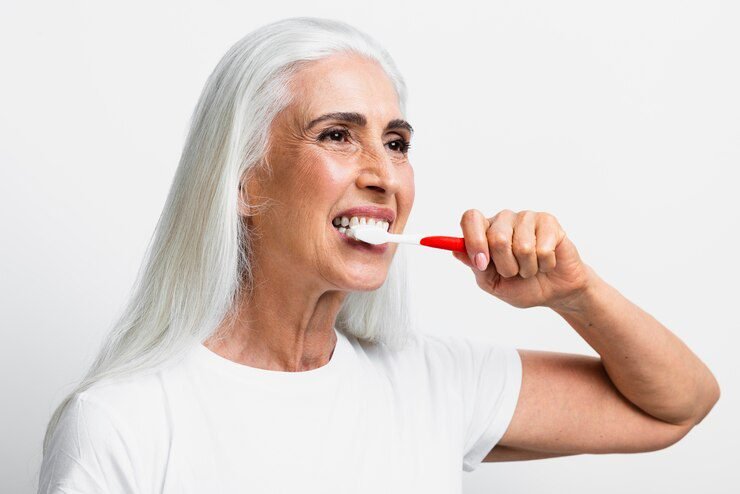
Research has shown that replacing your toothbrush every three to four months is recommended by dental professionals. This timeframe ensures that you are using a toothbrush with optimal cleaning power, providing you with the best chance of keeping your mouth healthy. So, make it a habit to check the condition of your toothbrush regularly and replace it when you notice signs of wear and tear. By doing so, you are taking a simple yet crucial step towards maintaining good oral health.
Overusing mouthwash or using the wrong type
Using mouthwash can be a helpful addition to your oral hygiene routine, as it can reach areas that brushing and flossing may miss. However, it is important to be aware that overusing mouthwash or using the wrong type can have negative effects on your oral health.
Overusing mouthwash can disrupt the natural balance of bacteria in your mouth, which is essential for maintaining a healthy oral environment. This can lead to an increase in oral health issues such as dry mouth, bad breath, and an increased risk of cavities.
Additionally, using the wrong type of mouthwash can also be detrimental to your oral health. Some mouthwashes contain alcohol, which can cause a drying effect on the mouth and contribute to the development of oral health problems. It is important to choose a mouthwash that is specifically designed to address your individual needs, whether it be for fresh breath, cavity prevention, or gum health.
To ensure that you are using mouthwash correctly and in moderation, it is always best to consult with your dentist. They can provide personalized recommendations based on your oral health needs and guide you on the proper use of mouthwash to maintain a healthy smile. Remember, moderation and the right type of mouthwash are key factors in optimizing your oral health.
Neglecting proper denture care
Proper denture care is essential for maintaining good oral health and ensuring the longevity of your dentures. Neglecting this important aspect of dental hygiene can lead to various issues, including bad breath, gum infections, and discomfort while wearing dentures.
One of the key aspects of denture care is cleaning them regularly. Just like natural teeth, dentures can accumulate plaque and food particles, which can harbor bacteria and cause oral health problems. It is crucial to clean your dentures thoroughly every day using a toothbrush specifically designed for dentures and a mild denture cleaning solution. Avoid using regular toothpaste, as it can be too abrasive and may cause damage to the denture material.
In addition to cleaning, it is important to handle dentures with care. Dropping them or handling them roughly can result in cracks or fractures. Dentures should be stored in a denture soaking solution or water when not in use to prevent them from drying out or warping. It is also essential to avoid exposing dentures to hot water, as it can cause them to lose their shape.
Neglecting proper denture care can lead to discomfort, oral health issues, and an overall decrease in the effectiveness of dentures. By following these simple yet crucial care guidelines, individuals can ensure their dentures remain in good condition and continue to provide them with a confident smile and optimal oral health.
Ignoring signs of gum disease
Gum disease is a common oral health problem that should never be ignored. The early signs of gum disease, such as red and swollen gums, bleeding while brushing or flossing, and persistent bad breath, may seem minor at first. However, if left untreated, gum disease can progress to more serious issues, including gum recession, tooth loss, and even systemic health problems.
Ignoring the signs of gum disease can have long-term consequences for your oral health. In fact, research has shown that gum disease is associated with an increased risk of cardiovascular disease, diabetes, respiratory infections, and even certain types of cancer. Therefore, it is crucial to address any signs of gum disease promptly and seek the appropriate dental treatment. Regular dental check-ups and professional cleanings can help identify and treat gum disease in its early stages, preventing further damage and ensuring a healthier smile for years to come.
Using teeth as tools
Using teeth as tools can be a common habit among many individuals, but it is important to understand the potential consequences it can have on your oral health. Your teeth are designed for the primary purpose of chewing and biting food, and using them for other purposes can lead to damage and even tooth loss.
When you use your teeth as tools, such as biting off tags, opening packages, or removing bottle caps, you are putting excessive pressure on them. This can result in chips, cracks, or fractures in the teeth, which can be painful and require dental intervention. Additionally, using your teeth as tools can also lead to misalignment or shifting, impacting your bite and overall dental health.
It’s important to remember that teeth are not designed to withstand the force and pressure exerted during these activities. By avoiding the temptation to use your teeth as tools and using appropriate tools instead, you can preserve the integrity of your teeth and maintain a healthy smile. It is always best to seek assistance from the appropriate tools or ask for help when needed, rather than risking potential damage to your teeth.
Neglecting proper hydration
Proper hydration is an essential aspect of maintaining good oral health. Many people underestimate the role that hydration plays in keeping their mouths healthy. Staying hydrated not only helps to quench thirst but also aids in the production of saliva, which is crucial for oral health.
Saliva acts as a natural defense mechanism for the mouth, helping to wash away food particles, neutralize acids, and fight off harmful bacteria. When we neglect proper hydration, the production of saliva decreases, leaving our mouths susceptible to dryness and a host of dental problems.
Furthermore, insufficient hydration can lead to a dry mouth, a condition known as xerostomia. Dry mouth not only makes it uncomfortable to eat and speak, but it also increases the risk of tooth decay and gum disease. Without enough saliva to wash away bacteria and acids, plaque can build up more easily, causing cavities and other oral health issues.
In conclusion, neglecting proper hydration can have detrimental effects on our oral health. Ensuring an adequate intake of water throughout the day not only keeps our bodies hydrated but also contributes to a healthy mouth. So, let’s remember to drink plenty of water for the sake of our smile.
Ignoring the importance of a balanced diet for oral health
A balanced diet is crucial for maintaining not only your overall health but also your oral health. Many people underestimate the impact that their diet can have on their teeth and gums. Consuming a diet high in sugars and carbohydrates can increase the risk of tooth decay and gum disease. Additionally, a lack of essential nutrients can weaken the immune system, making it harder for your body to fight off oral infections.
It’s important to remember that oral health is interconnected with the rest of your body. A diet that is lacking in nutrients such as calcium, vitamin D, and vitamin C can weaken your teeth and gums, making them more susceptible to infections. On the other hand, a diet rich in fruits, vegetables, whole grains, lean proteins, and dairy products provides essential nutrients that promote healthy teeth and gums. Incorporating foods like cheese, yogurt, leafy greens, carrots, and almonds into your diet can help strengthen your teeth and maintain optimal oral health. So, the next time you reach for a sugary snack or beverage, consider the impact it may have on your teeth and make a conscious effort to choose healthier alternatives to support your oral health.
Not seeking treatment for tooth sensitivity or pain
Tooth sensitivity or pain is a common dental problem that many individuals may experience at some point in their lives. It can range from a minor inconvenience to a debilitating issue that affects daily activities such as eating and drinking. Unfortunately, some people tend to ignore the importance of seeking treatment for tooth sensitivity or pain, thinking that it will eventually go away on its own. However, this is not always the case.
Ignoring tooth sensitivity or pain can have serious consequences for your oral health. It could be an indication of an underlying dental problem such as tooth decay, gum disease, or cracked teeth. Without proper diagnosis and treatment, these conditions can worsen over time, leading to more severe complications and potentially requiring invasive procedures to restore oral health.
Additionally, tooth sensitivity or pain can significantly impact your quality of life. Simple tasks like eating or drinking hot or cold foods can become unbearable, causing discomfort and anxiety. This can ultimately affect your ability to maintain a balanced diet and enjoy a variety of foods, leading to nutritional deficiencies and overall poor health.
To ensure optimal oral health and well-being, it is crucial to seek treatment for tooth sensitivity or pain as soon as it arises. Consulting with a dentist will allow for a thorough examination, accurate diagnosis, and appropriate treatment plan tailored to your individual needs. Remember, early intervention can prevent further damage and discomfort, allowing you to enjoy a pain-free smile and improved oral health.
How can I properly clean my tongue?
To clean your tongue, you can use a tongue scraper or brush your tongue gently with your toothbrush. This helps remove bacteria and prevent bad breath.
What are some signs of gum disease that I should watch out for?
Signs of gum disease include red, swollen, or bleeding gums, bad breath, loose teeth, and changes in the way your bite feels. If you notice any of these symptoms, it is important to seek dental treatment.
Can using teeth as tools lead to tooth sensitivity or pain?
Yes, using your teeth as tools, such as opening bottles or biting into hard objects, can cause tooth sensitivity or pain. It can lead to chips, cracks, or even fractures in your teeth.
How often should I replace my toothbrush?
It is recommended to replace your toothbrush every three to four months or sooner if the bristles become frayed. This ensures effective cleaning and prevents the buildup of bacteria.
Is it necessary to floss every day?
Yes, flossing daily is crucial for removing plaque and food particles between your teeth and along the gumline. It helps prevent tooth decay, gum disease, and tooth sensitivity.
Can neglecting proper hydration affect my oral health?
Yes, inadequate hydration can contribute to dry mouth, which increases the risk of tooth decay and gum disease. Drinking enough water helps maintain saliva production, which is essential for oral health.
How does consuming excessive acidic and sugary foods/drinks affect tooth sensitivity or pain?
Excessive consumption of acidic and sugary foods and drinks can erode tooth enamel, leading to tooth sensitivity or pain. It is important to limit their intake and maintain good oral hygiene.
What are some proper denture care practices?
Proper denture care includes removing and cleaning dentures daily, soaking them in a denture cleanser, brushing the gums and tongue, and keeping the dentures moist when not wearing them.
Should I seek treatment for tooth sensitivity or pain?
Yes, tooth sensitivity or pain is often a sign of an underlying dental issue. It is important to seek treatment from a dentist to identify and address the cause of the sensitivity or pain.






